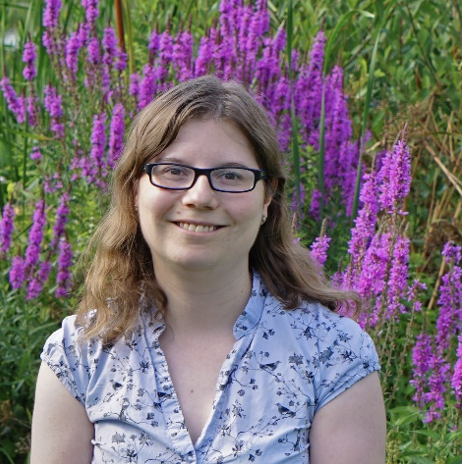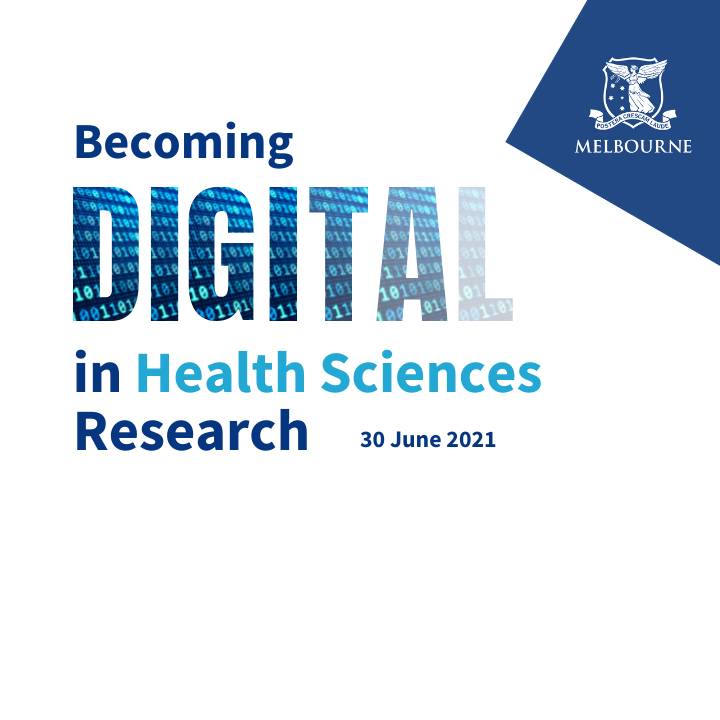Becoming Digital: Marianne Coleman
In the leadup to our 30 June Becoming Digital in Health Sciences Research event, clinical vision researcher Marianne Coleman shares what she's working on.

Orthoptist Dr Marianne Coleman is a Clinical Vision Research Fellow at the Department of Optometry and Vision Sciences (University of Melbourne), and the Australian College of Optometry’s National Vision Research Institute.
What digital health challenge are you working on right now?
I am working on a research study that seeks to specify a minimum dataset specification for community eye health research.
Who will benefit and how?
We hope to benefit eye health researchers and clinical eyecare professionals through the creation of a minimum dataset for use in eyecare research, that primary care optometry practices and public eye health organisations can contribute data to.
We hope to benefit other allied health professional groups by sharing our methodology and ethics documentation to make it easier to establish minimum dataset specifications for other allied health practice-based data contributed by community practitioners.
How are you doing it?
We are doing a Delphi exercise to build a consensus amongst clinicians and researchers on what should be in a minimum dataset.
In the first stage, eye health researchers across Australia are rating which demographic and eye health metrics, collected in the routine eye exam, are the most essential for general eye health research.
In the second stage, we are asking clinical optometrists about their health records software use, how often they collect the metrics that eye health researchers need, and how they record these.
In the final stage, we will present the minimum dataset specification and ask eye health researchers for their opinion to resolve any conflicts that arise about recording of metrics, and metrics classified as borderline eligible for inclusion.
How will you know what success looks like?
At the end of the Delphi exercise we will have a minimum dataset specification for trial use by eye health researchers nationally. We will use this to generate a minimum dataset from our large pool of patient data here at the Australian College of Optometry. This data would then be available for other researchers to apply to use through the University of Melbourne PATRON primary care data repository. This will be the first optometry minimum dataset to exist in Australia!
What stage are you at?
We are currently in the first stage of the Delphi exercise. Experienced eye health researchers across Australia have contributed their views and opinions and we are grateful for their contributions. We still need more Australian eye health researchers to complete our survey!
What do you think is the biggest digital health challenge in vision sciences today?
From my viewpoint as a clinical vision researcher, helping clinicians in practice to understand the value and impact of the health data they collect daily in routine practice, and how it helps us to do better research. Clinicians don’t always feel comfortable asking questions about topics like a patient’s ethnicity or their housing status, but in public health research having this kind of demographic information linked to their eye health record is incredibly insightful, and helps us to design better interventions. Having a minimum dataset specification helps us to empower clinicians to collect data they know is going to be useful for research.
What do you want your vision sciences colleagues to think, do and feel about digital health research?
Think about routinely collected data more often – at a recent national priority-setting workshop for vision research, health information systems research didn’t even make it into the top 10!
Do more research and collaborations with primary care optometry practices and other AHP groups, that use this data
Feel more positive about what we can do together to create high quality and complete optometry datasets that facilitate great research!
* Find out more about Marianne Coleman's research here. Marianne is a panellist at the Becoming Digital in Health Sciences Research event on 30 June 2021. More